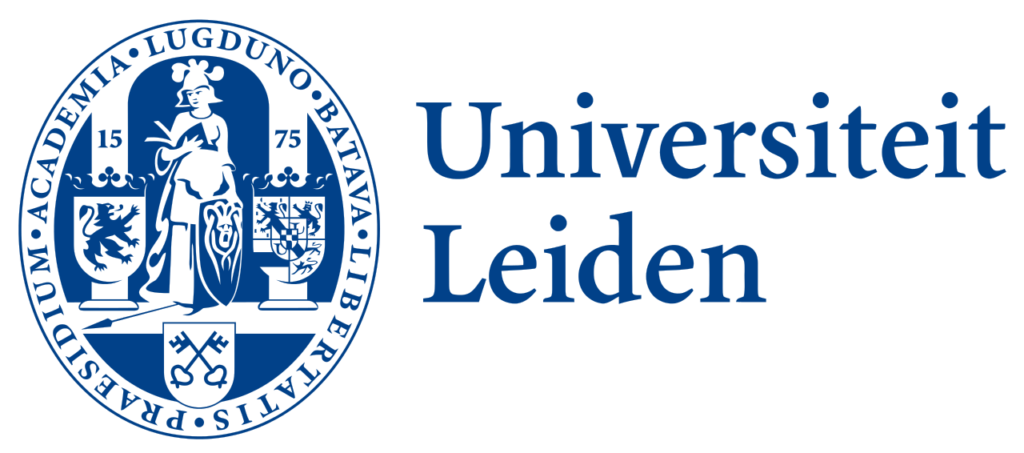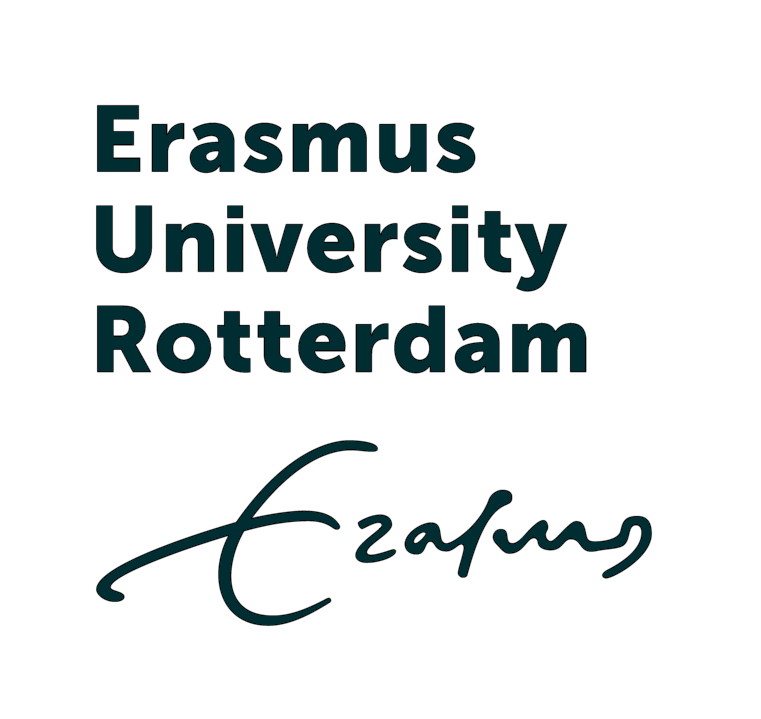Best English-Taught Computer Science Colleges in Europe
See the best Computer Science universities in Europe for international students, ranking for the most engaging, affordable, and powerful English-taught programs for 2024.

Our best computer science colleges in Europe rankings list may feel a bit scandalous or novel, given it hasn’t been influenced by external factors like sponsors and other rankings, nor is it based on disingenuous factors like research.
These rankings reflect many years of on-the-ground scrutiny, vetting, and experience by ourselves and our members, and speaks directly to what really matters to US students pursuing English-taught college degrees in continental Europe and Ireland.
#1 ETH Zurich-Swiss Federal Institute of Tech Zurich
Often at the top of international rankings for IT degrees, ETH Zurich’s pioneering master’s programs in CSE and in related fields are notably interdisciplinary, rigorous, and remarkably affordable. This school has an impressive list of local and international research collaborations, is highly international with 40% of the student body coming from outside of Switzerland, and flaunts 22 Nobel laureates as alumni, including Albert Einstein. In the heart of Europe, Zurich is an ideal place to study, known as the cosmopolitan city by the water that boasts both creative urban life and reverence for nature.


#2 Ecole Polytech Federale Lausanne
EPFL, another Swiss school, is one of Europe’s most cosmopolitan technical universities, with students, professors, and staff from 120+ nations. EPFL works together with an extensive network of partners, including other universities and institutes of technology, developing and emerging countries, secondary schools and colleges, industry and the economy, political circles and the general public, bringing about real impact for society. Expect strong internship opportunities, affordable tuition, dynamic programs, and impressive employability with their master’s degrees in computer science.
#3 Delft University of Technology
Wend your way between historic buildings and canals in the small city of Delft in the Netherlands. Often considered one of the leading technical universities in Europe, and no stranger to most international rankings lists for top IT programs at the graduate and undergraduate level. Students get the chance to carry out pioneering research in state-of-the-art research facilities such as the INSYGHT lab. TU Delft prides itself on a world class academic staff, a wealth of partnerships in the business community, high employability rankings, and a large international student body representing 100 nationalities.


#4 Technical University of Munich
More English-taught graduate degree programs in the computer science category than any other schools on our list here, high-caliber TUM has 10 graduate programs, each 2 years in duration. Designated by the German DFG and GR as a “University of Excellence”, TUM is considered a kind of ivy-league school in Germany. TUM has forged strong links with companies and scientific institutions worldwide, promotes cutting-edge research, and is famed for offering exceptional conditions for scholarship.
#5 Aalto University
You’ll find a unique range of reputable undergraduate and graduate programs in the computer science field at Aalto, all of which are strongly international, where studies are conducted in multicultural groups. Aalto meets the criteria for internationalization and high employability stats that align with their high-class company collaborations and in-house career services program. Local and international opportunities for internships are offered, and study abroad is encouraged. Like all universities in Finland, Aalto has a scholarship program for international students that may cover 100% or 50% of the tuition fee.


#6 Vrije University Amsterdam
VU Amsterdam is a world-renowned research university located in the vibrant city of Amsterdam, one of the most multicultural cities in the world. Students and staff of 78 nationalities create a dynamic international academic community. Both bachelor’s and master’s programs are offered in the computer science category, and some of their programs are in collaboration with the University of Amsterdam, offering another layer of rigor and prestige. Direct training and network options abound since the campus is beside one of the most dynamic and fast-growing business districts (700+ companies) in the Netherlands.
#7 Polytech University of Milan
Often featured on many traditional ranked lists as a top technical university, PMI has an established, worldwide reputation. A truly international school, PMI offers exchange and double-degree programs within their European and international network of partner universities. Their vast network of alumni are at places like Accenture, Deloitte, and Amazon. High employability numbers, emphasis on internationalization, reputable and rigorous programming, and impressively low tuition rates reflected for each of these grad programs.


#8 University of Twente
A standout university in the lively and international student city of Enschede, Netherlands. The University of Twente claims a so-called open-door policy and informal atmosphere, and the school prides itself on offering a large degree of individual support and guidance to its students. Across their literature and in their program philosophy they take a holistic approach, and emphasize the value of soft skills. Computer Science degrees are offered at the bachelor and master’s level, and a unique option for a double degree in applied mathematics is on offer at the grad level.
#9 Sapienza University of Rome
A BTS noteworthy school, Sapienza is one of oldest universities in the world (founded in Rome in 1303) and a top performer on multiple international rankings lists. It has programs in computer science, and related fields, in both their undergraduate and graduate schools, all of which are affordable. Of course, the cost of living in Rome is relatively high, but the low tuition may provide a nice cushion for the higher living costs. A famously large and resource-rich school, with an equally large international population, this is one to put on your radar.


#10 EPITA
EPITA’s computer science graduates are highly sought after by both French and multinational companies like Google, Microsoft, Facebook, IBM, and HP, and they claim that more than 96% of students are hired for a permanent job pre-graduation. These bachelor and graduate programs in the field of computer science include mandatory internships and the option for study abroad. It may reassure some to know that EPITA doesn’t require AP or SAT/ACT scores, but assesses students in their math and science background, and bases their acceptance on motivation and recommendation letters. For the master’s student, note that your last semester is a paid internship with one of EPITA’s corporate partners. Did I mention that this highly ranked and renowned institution is located in the cultural capital of Europe, in Paris?
The Problem With Other Rankings
While there are many rankings of international universities, college rankings usually refer to those that are most influential like US News, Times Higher Education, and the ShanghaiRanking (ARWU). We spend a good amount of time cautioning against using this factor as a major criterion. All ranking systems have different strengths, weaknesses, and biases. A school that is on one list may not appear at all on another. Further, not all schools are eligible for the rankings which rely on research and PhD programs heavily. If we ever reference this factor in our materials it’s because we realize it’s such a major part of the American mindset.
While the domestic US News rankings have their issues, their Global Rankings are truly flawed. The most important limitation to note is that, while there are a number of quality indicators US News uses in ranking US schools, their international rankings look exclusively at factors around research (such as global research reputation, number of publications, number of books published, number of citations, percentage of total publications that are among the 10 percent most cited, etc.).
If you need insight on why the college rankings system is truly flawed or a refresher on the increasing number of college rankings scandals in the US, here’s a gloomy summary.
So what do the traditional rankings really tell you about your educational experience? Nothing. Further, since the rankings are based solely on research related factors, small schools, specialized schools, and schools with an emphasis on applied and practical knowledge will not even be eligible for these rankings, though many of these schools are excellent with very reputable programs.
The New Way to Rank Schools
We are sometimes asked if college in Europe is as “good” as in the US. People assume a high degree of educational quality in the states simply because of the standard ratings, which are more-or-less unrelated to the educational experience or outcomes of the students. Honestly, the fact that our college graduates test only as high school grads from the Netherlands and Finland is quite telling…
This is why we’ve created a new kind of Ranking system, authored exclusively by Beyond the States, focusing primarily on school/program factors that really matter to US students choosing a degree in Europe:
- Accessibility and availability of English-taught degrees
- Affordability for international students
- Notable employability record and economic mobility
- Quality of international student life on campus/in the city
- Ample international student supports in place
- Availability of study abroad and internship opportunities
- Strong student reviews
- International exposure
As of this writing, there are 124 accredited, English-taught bachelor’s degrees and 182 master’s programs in Computer Science in our database, many of which are IT-related studies, like Computational Science Engineering (CSE), Data Science, AI and Robotics, and Cyber Security. All of the schools on our ranked list have stellar programs in this dynamic field, but most programs will have a common core curriculum, and so it will be critical to look closely at what distinguishes each program’s approach and philosophy and offerings, to find the right fit for you. In any case, the markers of an eminent computer science school will be a strong core curriculum and software design program, but also attention to soft skills like flexibility, critical thinking, and good communication.
Top Universities in Computer Science
The average computer and information science major gets a salary of $58,500 per year. This is one profession in which a person’s level of skill has a major effect on their earnings, however. The top 10% of employees make in excess of $95,500. With a job growth rate of 13% in this field over the next decade, it is unlikely that you’ll be unable to find work in the computer science and information technology field.
Computer science and computer information systems are usually separate degrees in both American and European universities, though with significant overlap. The difference is that computer science is somewhat more technical and theoretical, while information systems are geared more towards practical application. In other words, computer information systems focuses on business functions and particular solutions.This is a good career for someone with strong communication, organizational, and decision-making skills.
Computer science looks at hardware and software in much greater detail; programming, algorithms, analysis techniques, testing, and data structures make up the bulk of this degree course. Once graduated, this deeper knowledge of computer systems enables a student to pursue a career in any of several specialized fields, including cyber security, artificial intelligence, cloud computing, and data analytics.
Graduates of these fields can find an endless range of positions in various industries, from highly demanding startups to more sedate, established organizations in finance, research, government, and of course technology.
One important note regarding computer science programs in the Netherlands, such as those on our rankings list at The University of Twente, Vrije University Amsterdam, and Technical University Delft, is that they may be designated as “Numerus Fixus” or “Decentralized Selection”. This is a designation in the Netherlands which indicates that the program may have a restriction on the number of places available for applicants. This is usually due to demand, or where there is limited enrollment. With these designated programs the application deadline is typically earlier and a motivation letter and CV is often required as well. Keep your eyes peeled for this!
All in all, the schools on our Ranked list made it there because they seem to come up again and again for us, either when we’re creating Best Fit Lists or as features for our Programs of the Month, or they generally appeal to a large number of our members and international students. And there’s a reason for this – they uniquely, consistently meet the criteria above we’ve carefully devised after years of experience in the field of English-taught degrees in Europe.
Why Consider Studying Computer Science in Europe
Studying in the US can be a great experience, but it’s not the only option out there. If you’re looking for something different, studying in Europe might be the perfect choice. Beyond the States offers students a unique opportunity to get a degree from a top-ranking European university while still being able to study in English. You’ll get access to the best computer science universities in Europe with the top English undergraduate programs.
If packing up your whole life and moving sounds more exciting than terrifying, then you’ll love what colleges in Europe have to offer you. These are 5 reasons why going to college in Europe will be the best decision you’ll ever make:
1. Tuition is much more affordable than the US.
In continental Europe, the average cost of all the English-taught bachelor’s programs is just $7,390 per year. Since 1985, US college costs have surged by about 1000 percent, and tuition and fees continue to rise. Even when you factor in the cost of travel, going to college in Europe if often cheaper than one year of tuition at a state college in the US.
2. There are thousands of English-taught degrees.
Choice is another key issue. When cost is a chief consideration, you may be limited to only in-state schools, where tuition is lower. What if your in-state schools aren’t a good option for your chosen field of study? In Europe there are thousands of programs to choose from across 212 areas of study, and they are all taught 100% in English, so there’s no need to worry about learning a new language.
3. International exposure is essential and highly valued.
Students who studied abroad stand out from the crowd when seeking jobs after college. The very act of leaving their comfort zone to make a fresh start in a new place builds skills and confidence that will be carried throughout a student’s life. Silicon Valley billionaire investor, Chris Sacca, describes international study experience as a critical differentiating characteristic among candidates. According to former General Electric CEO Jack Welch, “The Jack Welch of the future cannot be like me. I spent my entire career in the United States. The next head of [General Electric] will be somebody who spent time in Bombay, in Hong Kong, in Buenos Aires.”
4. You’ll avoid the US admissions rat race.
The college admissions process in the US has become a race to the bottom as students compete with their peers for a single spot in a liberal arts college, convinced by parents and guidance counselors that their survival rests on playing a musical instrument or varsity sport. Many smart kids don’t do well on standardized tests. This doesn’t limit them as much when looking outside of the US, as many colleges in Europe do not require standardized tests. Many countries see entry into universities as a right, rather than a privilege, so admission standards are not as stringent.
5. Spend your weekends & breaks exploring the world.
Travel opportunities abound when attending college in Europe. For example, Lille, a city in northern France with multiple universities, is close to major cities such as Brussels, London, and Paris via high-speed rail. Air travel, especially with the rise of affordable airlines like Ryanair, EasyJet, and Transavia, can be comparable in price to rail travel, so many more destinations open up for short-term travel.
How to Get Into the World’s Top Universities
When you also factor in the many problems with US higher education, it is imprudent not to consider other possibilities. It is true there are many excellent schools in the United States—I don’t think anyone would argue that. There are some that have managed to look at applicants as people, and not just a checklist of achievements. Some even have reasonable tuition rates, and/or professors that actively teach and have highly engaged students. Despite this, I have yet to find a school in the United States that addresses all of these issues: allows students to opt out of the rat race the admissions process has become, have reasonable tuition, AND have positive results around the educational experience and post-graduation outcomes. Not every school in Europe provides all this either, but the schools listed in our database do.
How to Find Degrees in Europe That Are Taught in English
Finding these programs is burdensome, difficult, and confusing, especially with institutional websites in foreign languages… We know that making the decision to study abroad can be difficult, so we want to make it easy for you. We scoured the continent for programs and made them available to thousands of families looking to leave the US and find a better life in Europe. We’ve found over 11,200 degrees, 870 universities, 550 cities, and 32 European countries to choose from. Europe offers an impressive range of educational opportunities!
We have gathered all of the information you need to know about studying in Europe – from the different types of schools available to how to get housing and everything in between. Our database helps you find these programs quickly and easily, helping you contextualize the many benefits and options around higher education in Europe.
You will be able to find programs and courses that suit your interests and needs, taught in English by experienced professors in state-of-the-art facilities.
Get access to our database and search English-taught European bachelor’s and master’s programs to get started on your journey to Europe today.













